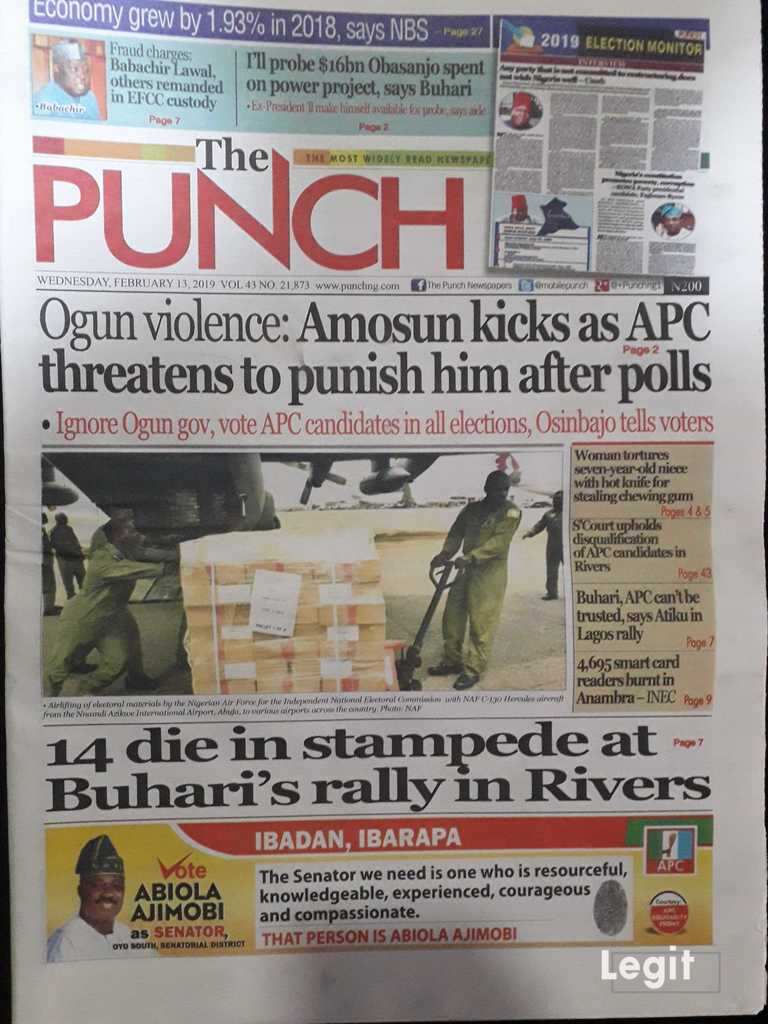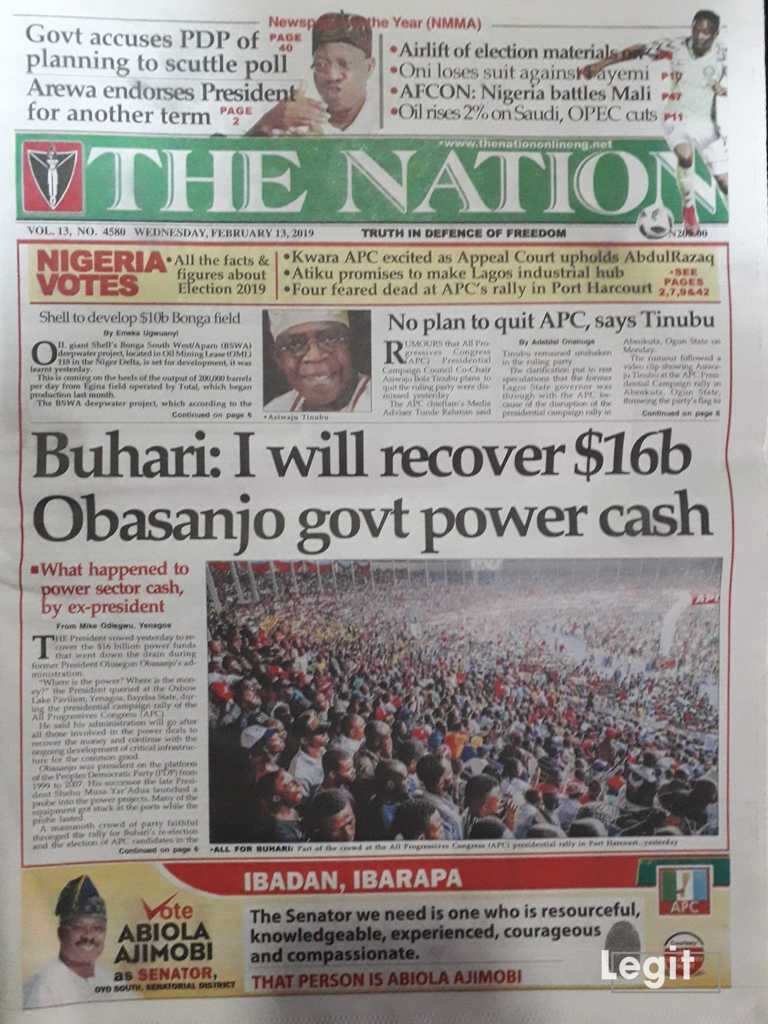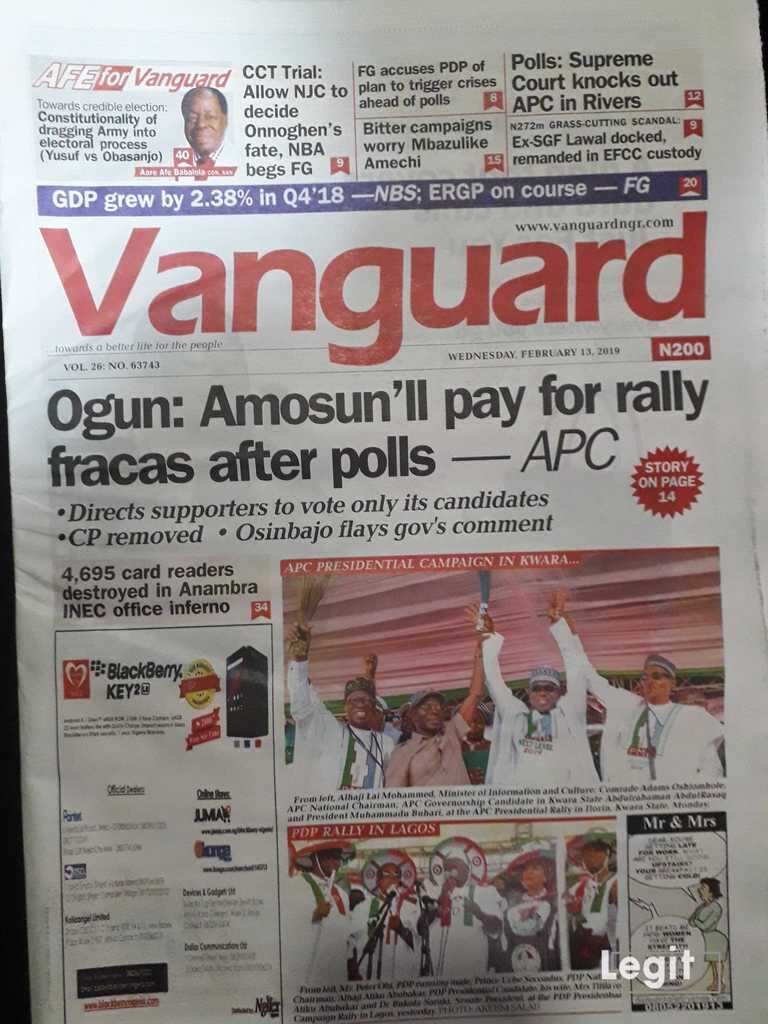The Nigerian newspaper review for Wednesday, February 13, leads with news that suspected hoodlums invaded the house of the Peoples Democratic Party (PDP) gubernatorial candidate in Kano, Abba Kabiru Yusuf, and set it ablaze and the death of fourteen persons at the end of the presidential campaign rally of the APC in Port Harcourt among other top stories.
The Guardian suspected hoodlums have invaded the house of the Peoples Democratic Party (PDP) gubernatorial candidate in Kano, Abba Kabiru Yusuf, and set it ablaze.
This came barely 24 hours after violence forced the presidential rally of the All Progressives Congress (APC) in Ogun State to be hurriedly brought to an end.
The building, which was recently converted into a political office and is located around Chiranchi quarters in Gwale Local Government area of Kano State was reportedly burnt and property worth millions of naira destroyed.

Nigerian Newspapers review for Wednesday, February 13: Obasanjo, a beneficiary of rigged polls, says Tinubu
Source: Original
Nigerian newspaper Vanguard reports that All Progressives Congress (APC) national leader, Senator Bola Tinubu, says the recent attack on the APC rally in Ogun was disrespectful to the office of the Nigerian President.
Tinubu lamented in a statement by his Special Adviser, Media, Tunde Rahman on Tuesday in Lagos, that the attack could have potentially harmed the person of the president.

Nigerian Newspapers review for Wednesday, February 13: Obasanjo, a beneficiary of rigged polls, says Tinubu
Source: Original

Nigerian Newspapers review for Wednesday, February 13: Obasanjo, a beneficiary of rigged polls, says Tinubu
Source: Original
Nigerian newspaper The Punch, fourteen persons on Tuesday lost their lives at the end of the presidential campaign rally of the All Progressives Congress at the Amiesimaka Stadium in Port Harcourt, Rivers state.
The persons died in a stampede around the gate of the stadium as the crowd attempted to leave the venue of the campaign.
Eight other persons were critically injured as they were marched on as people rushed to go home after listening to President Muhammadu Buhari, who was the last speaker at the APC event.

Nigerian Newspapers review for Wednesday, February 13: Obasanjo, a beneficiary of rigged polls, says Tinubu
Source: Original

Nigerian Newspapers review for Wednesday, February 13: Obasanjo, a beneficiary of rigged polls, says Tinubu
Source: Original
Source: Legit.ng
from Nigeria News today & Breaking Naija news ▷ Read on Legit.ng 24/7 http://bit.ly/2SOq8l0
via EDUPEDIA24/7
Comments
Post a Comment